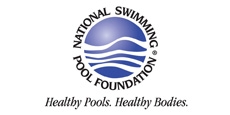5 HOT WEATHER POOL CARE SECRETS FROM THE FRONT LINES

Needless to say, July & August are our two hottest months. In July, we average six 100 degree days and in August we average nine 100 degree days.
As you can imagine, this hot weather can create problems for swimming pools if the pool is not properly maintained. We care for hundreds of pools on a weekly basis, and although we don’t always succeed at keeping them all clear and beautiful, we feel that we can offer some sage advice. Following are 5 hot weather pool care secrets from the front lines—the professional Pool Cleaners:
- Circulation—Be sure that your main pump is operating at least 8-12 hours per day. This will vary depending on the pool, but the pump must operate in order for the pool water to remain clear. If you have a salt system, you might have to run the pump for even longer periods, as the salt system does not operate unless the pump is in operation.
- Filtration—Filtration refers to the skimmer baskets, pump basket, and the filter—all need to be kept clean and free of debris. In addition, make sure that your filter is operating properly and be sure to keep your filter backwashed (or cleaned).
- Brushing—It is of particular importance to brush the walls and floor of the pool in order to prevent algae and bacteria from growing, especially in the low circulation areas of the pool (steps, benches, corners, etc.).
- Proper Water Chemistry—Pool water should be tested and treated at least once per week in order to keep it free from bacteria and algae. In addition, bring a pint of pool water to our Retail Store at least every month or so and we will perform a complete water analysis for you. Once the tests have been performed, add the chemicals that are needed. It is also a good idea to use a preventative algaecide in this hot weather.
- Test at least weekly during this hot weather
- chlorine – 2.0 to 4.0ppm
- pH – 7.2 to 7.6
- cyanuric acid – 30 to 50ppm
- salt level in a salt pool –2700 to 3500 ppm
- Test monthly or as needed
- total alkalinity –
- 80 to 100 for calcium hypochlorite, salt pools, & liquid chlorine pools
- 100 to 120 for dichlor and trichlor pools
- calcium hardness – 200 to 400 ppm
- total alkalinity –
- Test at least weekly during this hot weather
- The Most Important Tip—Professional Pool Cleaners all know that maintaining the pH in the proper level is the most important key to dealing with pools in hot weather. Chlorine (including salt pools) is much more effective when the pH is at 7.2 than it is at 7.6, so try to keep your pH in the lower half of the range (7.2 to 7.4).
As you enjoy your swimming pool this summer, be sure to be aware of the importance of a regular maintenance program in order to avoid problems such as cloudy water or algae.
Source:
https://gohlkepools.com/5-hot-weather-pool-care-secrets-from-the-front-lines/








